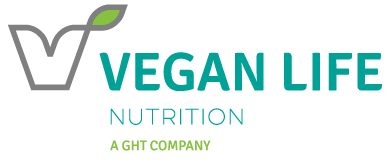How to stay vegan
Going vegan is becoming a more mainstream concept. Even so, the majority of the population still eats meat, possibly due to the challenges of being vegan. “A recent poll conducted by Gallup has found that fewer than one in 10 Americans adheres to one of the diets with only 5 percent saying they are vegetarian and 3 percent saying they are vegan.1”
Going out to eat with others can be difficult, for example, because the restaurant they’ve chosen might not specialize in vegan fare. You can make it easier on yourself by perusing the menu online and calling in advance to clear up any concerns you may have about ingredients in dishes. Then when you’re out with family and friends, you don’t need to bombard the waiter or waitress with endless questions.
Regardless of how long you’ve been vegan, finding convenience foods can be difficult. Make a habit of checking out any new items that appear on the shelf of your local grocery store. Read ingredient labels, and snap up any new easy, healthful vegan food choices that they stock.
It’s all in the prep
Better yet, work at being prepared, with the ingredients for good vegan meals on hand. Letting your cupboards go bare increases your risk of getting something to go that does not meet your dietary standards. Cooking at home is always superior to eating out, because it costs less and you can control the quality of the food you’re making.

It’s also good to become part of a vegan community, whether it is a group you meet up in person or a chat room, or a blog you follow and comment on. You’ll connect with other people who understand your reasons for going vegan and can help support your choice. There’s also a wealth of helpful information online, such as plant-based recipes and articles on vegan nutrition.
Finally, educating yourself on any nutrients that are lacking in a meat and dairy-free diet, as well as how best to replace them, will help you avoid developing a deficiency.

Keeping your health focus
Staying vegan takes focus and dedication and it’s most effective when combined with a healthy lifestyle. Anyone on a plants-only diet should be aware of certain nutrients vegans need that can be lacking in a diet that does not include meat or dairy products.
B12 is necessary for good mental health, producing energy, a healthy nervous system, and strong skin, nails and hair. The foods that are highest in this vitamin, such as clams, tuna, crab and beef, are not part of a vegan diet. Fortunately, supplementation has been shown to be quite effective. “The use of supplements or fortified foods seems to prevent deficiencies, indicating that a well-planned plant-based diet has proven to be adequate and sustainable.2“
Vegan Life Nutrition offers vitamin B12 chewable tablets that contain a full day’s supply of this critical nutrient. And they’re 100% vegan, so you can continue to put only high quality plant-sourced nutrients into your body.
References
1 Who Are America’s Vegans And Vegetarians?, MDPI AG Journals, Nutrients | NCBI.
2 Vitamin B12 among Vegetarians: Status, Assessment and Supplementation, Forbes Media LLC.
NOTE: The Forbes Media LLC, MDPI AG, National Center for Biotechnology Information, U.S. National Library of Medicine, and Creative Commons Attribution 4.0 International Public License, have not reviewed or approved the above article.
